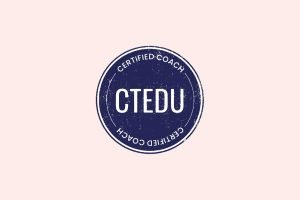Last updated on September 20, 2022
As I write this, I’m sitting on a terrace sipping an iced coffee, listening to Sade, and watching people in the afternoon sun. Let’s not romanticise my afternoon so much; I’m still in Stratford, East London—not Santorini.
Still, this is a far cry from where I was three years earlier. And as clichéd as it sounds, I am creating a life that I love, based on what I value in life.
In July 2019, I was six weeks post-breakdown. I’d been living my life at 100mph for too long, and my body had had enough. I was diagnosed with severe depression and anxiety and signed off work indefinitely. I’d ignored the warning signs for at least 18 months, just tried to power through and carry on. But in the end, everything came crashing down.

As well as antidepressants, exercise, and using lots of different CBT techniques to deal with it all, we (in the sessions with my psychologist and in my spare time) started working on my values.
I know now that Acceptance and Commitment Theory (ACT) was the basis of our work. It comprises six core principles that work together to help you develop a life-changing mindset known as ‘psychological flexibility.’ If you’re interested in reading more about this, I recommend reading anything by Russ Harris.
I once read somewhere that values reflect what is most important to you in your heart. I like that phrase. They give you direction and motivate you to make essential changes in your life.
But before doing any of this work, I wouldn’t have known where to start with articulating my values. I knew I was creative and loyal, but that was probably about it.
I would go as far as to say that if I hadn’t done all the work that I have done on my values and how my life aligns with them, I wouldn’t be sitting here writing this article. Not in a morbid way, but I don’t think I’d be doing what I’m doing now if it wasn’t for all the effort I gave to working out my values.
And it wasn’t just overcoming the breakdown; I completely changed my career. I worked for 12 years in investment banking marketing. And I loved it right up until I didn’t. And then something happened in my life that made me rethink everything.
What Misaligned Values Feel Like
What I was doing before my breakdown wasn’t making me happy. I had spent years making my career my sole focus, climbing up the career ladder, and focusing on that next promotion. I thought that was what success should look like. My life didn’t align with my values because I hadn’t even taken the time to define what they were.
I didn’t know what I enjoyed doing outside of work besides going to the gym. I had put all my eggs in one basket. So when that basket started to break, I didn’t know what to do with myself.
I started to understand that if I was doing something that made me feel underwhelmed or didn’t really ‘feel right’ or jarred me, it was likely because what I was doing didn’t align with my values.
Have you ever clashed with someone in your life, and you’re not sure why, but MAN, THEY ARE ANNOYING? It’s likely linked to the fact that you share different values.
Now I know you might be thinking, ‘erm, yeah, and?’, but for me, it was mind-blowing. And for months, I spent time working on them every week—figuring out what I valued at work, in friendships, in relationships, and at home.
My life didn’t align with my values because I hadn’t even taken the time to define what they were.
It made me understand why sometimes people at work couldn’t connect with what I was passionate about or why certain things didn’t drive me, interest me, or left me unmotivated.
This newfound awareness made me reevaluate what I was doing, what brought me joy and alignment, and what made me frustrated or anxious and did not align.
Finding Alignment In a New Career
With all that work and being an action-taker at heart, I decided to retrain to become a life coach. It’s not a profession I had ever heard of or considered before, but my psychologist had connected the dots in our sessions, and we discussed what my next steps could be.
My values had changed a lot after my breakdown. But I accepted that values would change, and that was OKAY. Let me give you an example:
Before I had my breakdown, the structure at work wasn’t that important to me. I was more than happy to fly by the seat of my pants most of the time and work on things off the cuff. However, after the breakdown, I craved structure throughout my life—especially in a work scenario. So I worked to ensure I had a sense of structure in my job. It meant learning to set boundaries, create a new routine, and make others aware of the situation.

Creativity is another one of my core values, and I found that if I didn’t have the opportunity to be creative, I felt stagnant, disappointed, sometimes frustrated, and upset. So I would spend the time to find something that helped me fill up my creativity cup. If that wasn’t at work, then I would look for other ways that I could be creative. That has resulted in me attending art workshops, taking calligraphy courses, and helping other businesses with their social media.
As I start to build my business, I’ve begun to realise that freedom as a value is so important to me. From a literal sense of being free to run my schedule and work where I want (hence the sunny coffee shop) to choosing the activities I can participate in with family and friends, to the financial freedom I now have, I have the freedom to make choices about how I spend my time and money.
Being more in line with and aware of my values also transformed how I approached dating, but that’s a story for another time…

Lindsey Roberts
After working in global financial services organisations for over a decade, Lindsey retrained as an accredited life coach, specialising in overwhelm and burnout prevention.
Through her business Goal Digger Coaching, she works with clients on a 1:1 basis, in group workshops, and via bespoke corporate programmes.
















Be First to Comment